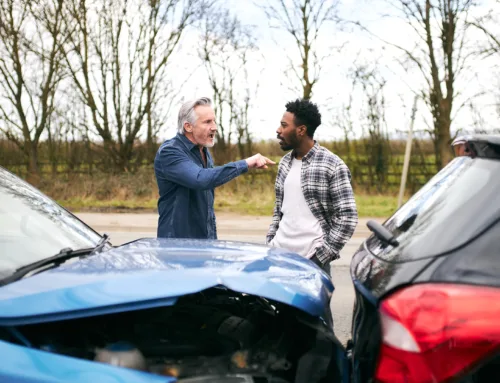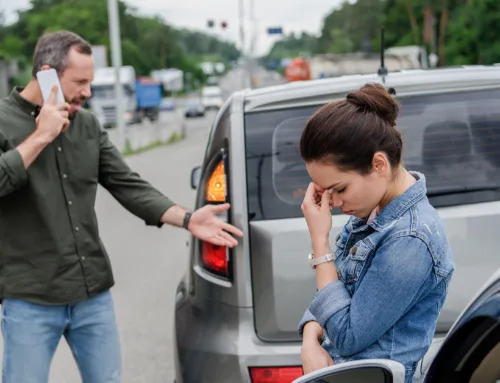Accidents involving trucks like 18-wheelers and other large commercial vehicles have the potential to cause catastrophic damage. If you’ve recently been injured in an accident with a truck, deciding how best to navigate the aftermath can be overwhelming. What are your rights in Georgia, and what are the first steps you should take to prioritize your recovery?
Large Truck Facts and Statistics
In 2021, 244 people in Georgia were killed in accidents involving large trucks. The weight, height, and overall size of these trucks make them especially dangerous, which is why most truck drivers will operate their vehicles with caution and care.
However, some truckers are negligent, ignoring their duty of care and prioritizing their delivery routes over the safety of other motorists. The most common truck driver violations discovered during inspections in 2021 were speeding and failure to obey traffic control devices. Among the top five violations was also operating a commercial motor vehicle without a commercial driver’s license.
What to Do After an Accident
The seconds and minutes after an accident with a large truck can be a blur; the trauma and chaos of the collision make it nearly impossible to think clearly. The most important thing to remember is to focus on safety first.
Safety First
Make sure you and your passengers are safe by checking your surroundings for:
- Hazardous materials or cargo from the truck
- Oncoming traffic
- Broken glass or other sharp objects
- Leaking gasoline
If it is safe to do so, move from the crash and wait for assistance away from potential dangers.
Report the Accident to the Police
Georgia requires motorists involved in accidents that cause injury, death, or more than $500 in property damage to report the accident to the local police immediately.
Stay on the Scene and Exchange Information
Georgia law also requires drivers involved in accidents to stay on the scene and do the following:
- Give their name, address, and vehicle registration number
- Render reasonable aid to injured people
- If requested, show their driver’s license to other involved motorists
Seek Medical Attention
Even if you think your injuries are minor, obtaining medical care after an accident is critically important. It is not unheard of for injury symptoms to show up hours or days after the collision, and it is common for pain to increase as the shock of the crash subsides. This step is especially important since truck accidents have the potential to cause catastrophic injuries.
Document the Crash and its Aftermath
Having documentation of the accident will be important for your insurance claim or accident case. Take photos or videos of the scene, including the road, your vehicle, and the truck. Take notes of anything that isn’t visible in pictures. If there are witnesses, speak to them about what they saw and ask for their contact information. Only do as much as is safe for you to do based on your injuries and the condition of the accident scene.
Other evidence that will be helpful throughout your case includes:
- Medical records
- Invoices for property damage and repairs
- Receipts for purchases related to your accident, such as rental cars or mobility aids
- Documentation of missed work and lost income
You aren’t alone if you feel overwhelmed, wondering what to do after a truck accident. Personal injury claims are complex, and the stress of physical and emotional trauma only complicates the process further. It’s always a good idea to contact a personal injury attorney for individualized guidance on what to do after an accident involving a large truck.
Atlanta’s Trusted Trucking Accident Attorneys
If you’re wondering what to do after a truck accident, our personal injury attorneys are here to answer all your questions. They are happy to share their targeted experience and knowledge to help you make an informed decision about your Georgia truck accident claim. Contact Flanagan Law today to schedule a free consultation.


